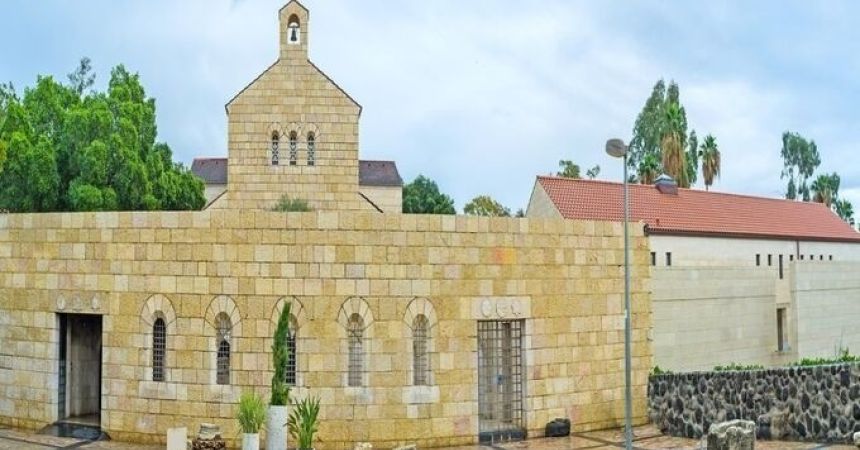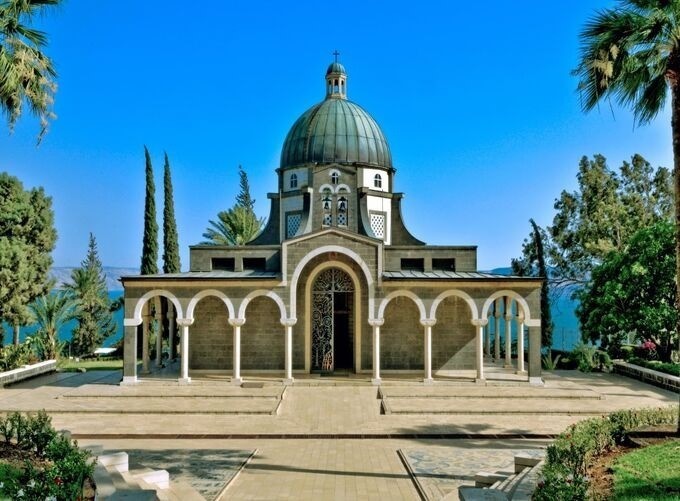
Israel Travel Tips: Everything You Need to Know
Traveling to Israel is an enriching experience, offering a mix of ancient history, vibrant culture, and diverse landscapes. Whether you're visiting historical sites, enjoying the Mediterranean beaches, or exploring the unique desert regions, being well-prepared can enhance your trip. Here are some essential travel tips to help you navigate Israel and make the most of your holiday.
Understanding Israel's Geography and Climate
Israel is a small but geographically diverse country. Knowing its layout and climate variations will help you plan your trip more effectively
Major Regions
- Coastal Plain: Includes cities like Tel Aviv and Haifa, known for their beaches and vibrant urban life.
- Central Highlands: Home to Jerusalem, with its historical and religious sites.
- Jordan Rift Valley: Contains the Dead Sea, the lowest point on Earth.
- Negev Desert: Covers the southern part of Israel, including the city of Eilat on the Red Sea.
Climate
Israel has a Mediterranean climate, with hot, dry summers and mild, wet winters. The best times to visit are during the spring (March to May) and autumn (September to November) when the weather is pleasant.
Packing Tips
- Summer: Lightweight, breathable clothing, swimwear, sunscreen, hat, and sunglasses.
- Winter: Layered clothing, a warm coat for Jerusalem and northern regions, waterproof gear.
Entry Requirements and Travel Documents in Israel
Passport and Visa
- Passport: Ensure your passport is valid for at least six months beyond your intended stay.
- Visa: Citizens of many countries, including the USA, EU, Canada, and Australia, do not require a visa for stays up to 90 days. Check the specific visa requirements for your nationality.
Entry Procedures
- Arrival: At Ben Gurion Airport or other entry points, you will go through passport control. Israel no longer stamps passports; instead, you'll receive a small paper slip, which you should keep with you throughout your stay.
- Security Checks: Be prepared for thorough security checks and questioning by immigration officials. Answer questions honestly and confidently.
Cultural Etiquette and Customs in Israel
Respecting local customs and traditions is crucial for a positive travel experience in Israel.
Dress Modestly
- Religious Sites: Both men and women should cover their shoulders and knees when visiting religious sites. Women should carry a scarf or shawl to cover their heads if required.
- Urban Areas: Casual attire is acceptable, but it's respectful to dress modestly, especially in conservative areas.
Observing Shabbat
- Shabbat: The Jewish day of rest, from sunset on Friday to sunset on Saturday, affects public transportation, business hours, and dining options. Plan accordingly, as many services will be limited or unavailable.
- Etiquette: Avoid using electronic devices or making loud noises in religious neighborhoods during Shabbat.
Tipping and Hospitality
- Tipping: It's customary to tip 10-15% in restaurants. Tipping taxi drivers, hotel staff, and tour guides is also appreciated.
- Hospitality: Israelis are known for their directness. Don't mistake it for rudeness; it's a cultural trait. Engage with locals respectfully, and you’ll often find them warm and welcoming.
Transportation and Getting Around
Israel offers a variety of transportation options, making it easy to travel within the country.
Public Transportation
- Buses: Egged and Dan are the main bus companies. Buses are reliable and cover most areas.
- Trains: Israel Railways connects major cities, including Tel Aviv, Haifa, and Jerusalem. The high-speed train from Tel Aviv to Jerusalem is particularly convenient.
- Shared Taxis (Sheruts): Sheruts are shared minivans that operate on fixed routes. They are useful for travel on Shabbat when buses and trains are not available.
Car Rentals
- Convenience: Renting a car is a good option for exploring more remote areas and having flexibility.
- Requirements: You need an international driving permit and must be at least 21 years old, though some rental companies require you to be 25.
Taxis and Ride-Sharing
- Taxis: Widely available in cities. Ensure the meter is running or agree on a fare in advance.
- Ride-Sharing: Gett and Uber operate in Israel, providing convenient and reliable services.
- Accommodation Options
Israel offers a wide range of accommodation options to suit all budgets and preferences.
Hotels
- Luxury Hotels: High-end hotels in Tel Aviv, Jerusalem, and Eilat offer excellent amenities and service.
- Budget Hotels: Affordable options are available in major cities and tourist areas.
Guesthouses and Hostels
- Guesthouses: Family-run guesthouses provide a more personal and local experience.
- Hostels: Budget-friendly hostels are available in cities and popular tourist destinations.
Vacation Rentals
- Apartments and Homes: Platforms like Airbnb offer a variety of short-term rental options, providing more space and amenities.
Kibbutz Stays
- Unique Experience: Staying in a kibbutz (communal agricultural settlement) offers a unique cultural experience and insight into Israeli life.
Health and Safety in Israel
Health Precautions
- Vaccinations: No specific vaccinations are required, but it's advisable to check with your healthcare provider.
- Pharmacies: Pharmacies are widely available. Many medications are available over-the-counter.
Safety Tips
- General Safety: Israel is generally safe for travelers, but it's important to stay informed about the current security situation.
- Personal Safety: Keep your belongings secure and be aware of your surroundings, especially in crowded places.
- Emergency Services: Dial 100 for police, 101 for medical emergencies, and 102 for the fire department.

Drinking Water
- Tap Water: Tap water in Israel is safe to drink. Bottled water is also widely available.
Money Matters
Currency
- Israeli Shekel (ILS): The official currency is the New Israeli Shekel (NIS). Coins are available in denominations of 10 agorot, 50 agorot, 1 shekel, 2 shekels, 5 shekels, and 10 shekels. Banknotes come in denominations of 20, 50, 100, and 200 shekels.
Currency Exchange
- Exchange Services: Available at airports, banks, hotels, and exchange bureaus. ATMs are widely accessible.
- Credit and Debit Cards: Widely accepted in Israel. Inform your bank of your travel plans to avoid issues with card transactions.
Food and Dining in Israel
Israeli Cuisine
Israeli cuisine is a delightful blend of Middle Eastern, Mediterranean, and international flavors. Here are some must-try dishes:
- Falafel: Deep-fried chickpea balls served in pita with salads and tahini.
- Hummus: Creamy chickpea dip, often enjoyed with fresh pita bread.
- Shakshuka: Poached eggs in a spicy tomato and pepper sauce, typically eaten for breakfast.
- Sabich: A sandwich filled with fried eggplant, hard-boiled eggs, and various salads.
- Fresh Produce: Israel’s markets are abundant with fresh fruits, vegetables, and herbs.
Dining Etiquette
- Kosher Dietary Laws: Some restaurants adhere to kosher dietary laws, separating dairy and meat products. If you follow these practices, look for kosher certification.
- Tipping: Tipping in restaurants is customary, with 10-15% being standard.
- Reservations: It is advisable to make reservations at popular restaurants, especially on weekends and holidays.
Exploring Major Cities and Attractions
Jerusalem
Jerusalem, a city of profound historical and religious significance, offers numerous attractions:
- Old City: Home to religious sites like the Western Wall, Church of the Holy Sepulchre, and Dome of the Rock.
- Yad Vashem: The Holocaust Memorial Museum, a poignant and educational experience.
- Israel Museum: Features the Dead Sea Scrolls and extensive archaeological exhibits.
Tel Aviv
Tel Aviv is Israel’s modern, vibrant city known for its beaches, nightlife, and cultural scene:
- Beaches: Enjoy the Mediterranean coastline with popular beaches like Gordon Beach and Frishman Beach.
- Neve Tzedek: A charming neighborhood with boutique shops, galleries, and cafes.
- Rothschild Boulevard: A bustling street with trendy restaurants and Bauhaus architecture.
Haifa
Haifa, located on the slopes of Mount Carmel, offers beautiful views and cultural diversity:
- Bahá'í Gardens: Stunning terraced gardens and a UNESCO World Heritage site.
- German Colony: A historic district with restored Templar buildings and restaurants.
- Stella Maris Monastery: A Carmelite monastery with panoramic views of the city and the sea.
Dead Sea
Traveling to Israel The Dead Sea, the lowest point on earth, is a unique natural wonder:
- Floating Experience: The high salt content allows you to effortlessly float on the water’s surface.
- Mud Baths: Enjoy the therapeutic benefits of the mineral-rich mud.
- Masada: A visit historic fortress Masada with breathtaking views, accessible by cable car or hiking.
Eilat
Eilat, located on the Red Sea, is a resort city known for its marine life and outdoor activities:
- Coral Beach Nature Reserve: Snorkeling and diving opportunities to explore coral reefs and marine biodiversity.
- Dolphin Reef: Swim and interact with dolphins in their natural habitat.
- Timna Park: A desert park with unique rock formations, hiking trails, and ancient copper mines.
Festivals and Events in Israel
Religious Festivals
Israel celebrates a variety of religious festivals throughout the year, offering unique cultural experiences:
- Passover (Pesach): Celebrates the Exodus of the Israelites from Egypt. It involves special meals (Seder) and the eating of unleavened bread (matzah).
- Yom Kippur: The Day of Atonement, a solemn day of fasting and prayer.
- Hanukkah: The Festival of Lights, celebrated with the lighting of the menorah, special foods, and games.
National and Cultural Events
- Independence Day (Yom Ha'atzmaut): Celebrates the founding of the State of Israel with parades, fireworks, and public festivities.
- Jerusalem Film Festival: Showcases Israeli and international films, attracting cinema enthusiasts from around the world.
- Tel Aviv Pride: One of the largest LGBTQ+ pride events in the world, celebrated with parades, parties, and cultural events.
Technology and Connectivity
Internet Access
- Wi-Fi: Widely available in hotels, cafes, and public places.
- SIM Cards: Local SIM cards with data plans are available for purchase at the airport and mobile shops.
Staying Connected
- Apps: Useful apps include Moovit for public transportation, Gett for taxis, and Google Maps for navigation.
- Social Media: Stay connected with friends and family through social media platforms.
Shopping and Souvenirs in Israel
Markets and Shopping Areas
- Carmel Market (Tel Aviv): A bustling market offering fresh produce, spices, and souvenirs.
- Mahane Yehuda Market (Jerusalem): Known for its vibrant atmosphere and variety of goods.
- Old City Souks (Jerusalem): Traditional markets with a wide range of items, from jewelry to textiles.
Popular Souvenirs
- Dead Sea Products: Skincare products made from Dead Sea minerals.
- Olive Wood Carvings: Handmade items, often with religious themes.
- Israeli Wine: A variety of wines from Israel’s burgeoning wine industry.
- Ceramics and Pottery: Beautifully crafted items from local artisans.
Conclusion: Exploring the Rich Experiences of Israel
Traveling to Israel offers a rich tapestry of experiences, from exploring ancient historical sites to enjoying modern urban life. By following these travel tips, you can ensure a smooth, enjoyable, and memorable trip. Whether you’re drawn by religious significance, cultural diversity, or natural beauty, Israel has something to offer every traveler. Plan ahead, respect local customs, and embrace the adventure that awaits in this fascinating country.



